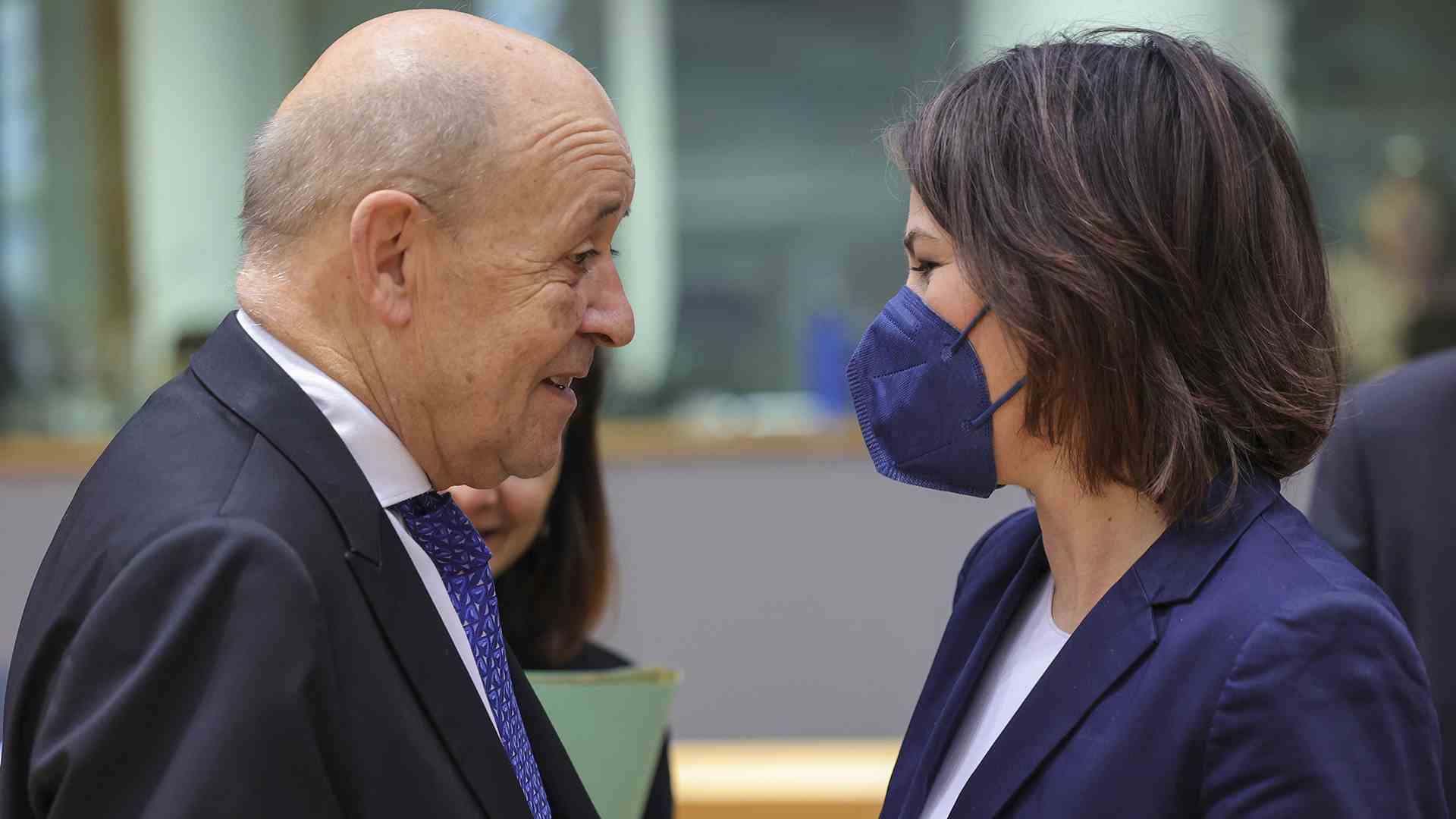Status: 05/16/2022 1:52 p.m
The dispute in the EU over the planned oil embargo against Russia continues. Four countries are slowing down – they are particularly dependent on Russian oil. The EU foreign ministers are now negotiating a solution.
First the G7, then NATO, now the European Union. Crisis diplomacy is in full swing. The EU foreign ministers agree that Ukraine must continue to be supported economically, politically and militarily. In the dispute over the planned oil embargo against Russia, on the other hand, there is no solution in sight.
The Czech Republic, Slovakia, Bulgaria and above all Hungary are still on the brakes. Countries are particularly dependent on Russian oil and are demanding more time to switch to other suppliers and supply channels.
“We see that some states are in a very special situation,” said Europe’s chief diplomat Josep Borrell. And: “In the end we will all succeed in continuing to act as one against Russia.”
“There is still no agreement on the oil embargo,” Markus Preiß, ARD Brussels, on the meeting of EU foreign ministers
Tagesschau 12:00 p.m., 16.5.2022
Everyone must be able to boycott
If there is no agreement, a split of the sanctions package is under discussion. Then the undisputed points could be decided quickly – such as the punitive measures against other Russian banks and oligarchs. The oil boycott, on the other hand, would be left out and postponed for the time being.
However, German Foreign Minister Annalena Baerbock hopes that there will be an agreement in the next few days: “We are agreeing on sanctions packages that, in case of doubt, will have to last for years. And if we want to get out of our fossil energy dependency on Russia, then we have to be prepared so that it doesn’t have such an impact on European countries that they can’t handle.”
Lithuania: Hungary’s veto takes EU hostage
It is true that most EU countries want to help the countries that are particularly affected. However, the veto threat from Hungary and the demand for significantly longer transition periods and billions in aid from Brussels to build a new pipeline are met with resistance.
As is so often the case, the harshest criticism came from Lithuanian Foreign Minister Gabrielius Landsbergis, who is known and notorious for his plain language. He calls it “extremely unfortunate that a single member state is preventing an agreement – and is thus taking the entire EU hostage.”
Austria: Russia is watching us
According to Austria’s Foreign Minister Alexander Schallenberg, the oil embargo should be negotiated behind closed doors so that the EU does not appear divided because it only plays into the hands of the Kremlin.
“Russia is watching us and others too. We are in a confrontational situation. We’ve managed to do five sanctions packages so far, that we’ve discussed internally and then gone public when we had an agreement. And I would strongly advocate that we’ll do it the same way this time.”
How should the grain get abroad?
The foreign ministers also want to talk about how the EU can help Ukraine to ship its grain abroad. Russia is blocking Ukrainian ports, so millions of tons of wheat cannot be shipped by sea. Freight trains are used as an alternative.
“But more than 120,000 tons of grain from the Ukraine have already been shipped all over the world via the Romanian Black Sea port of Constanza,” says Romania’s Foreign Minister Bogdan Aurescu. After all, it is extremely important to combat the food crisis.
The foreign ministers want to give the green light for a further 500 million euros from the EU peace fund to be made available for the delivery of weapons and equipment to the Ukrainian army. This increases EU military aid to Ukraine to two billion euros.
Hungary opposes – EU foreign ministers are looking for a solution to the dispute
Stephan Ueberbach, ARD Brussels, May 16, 2022 1:05 p.m

